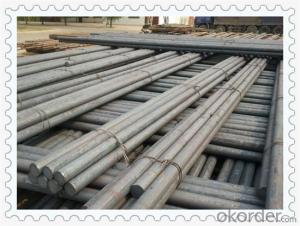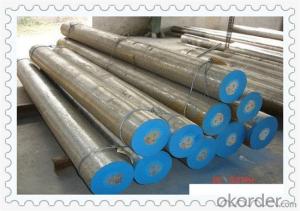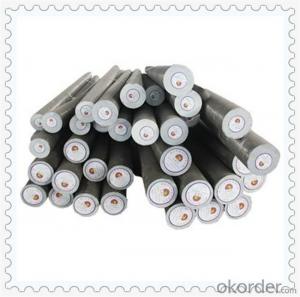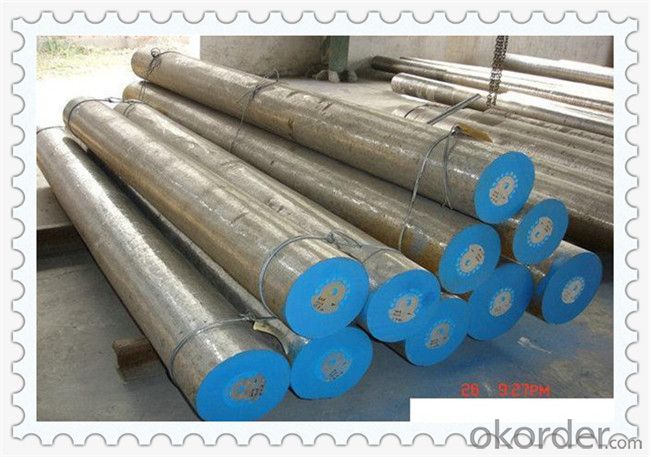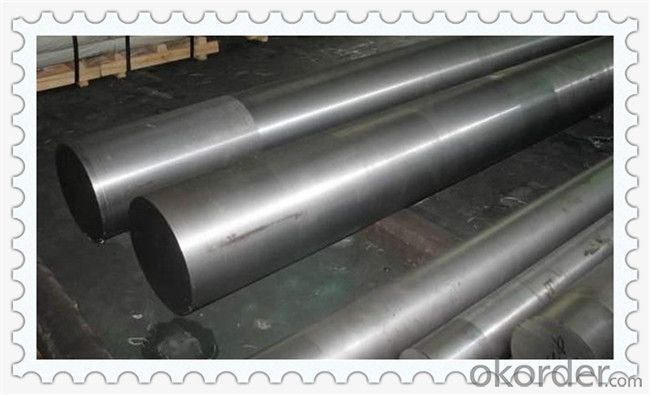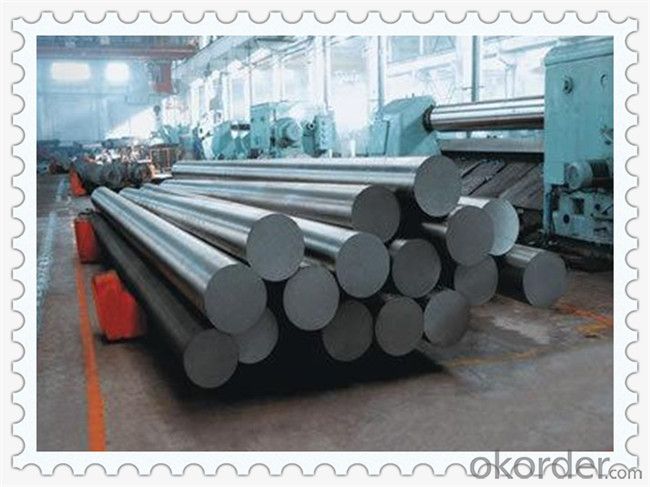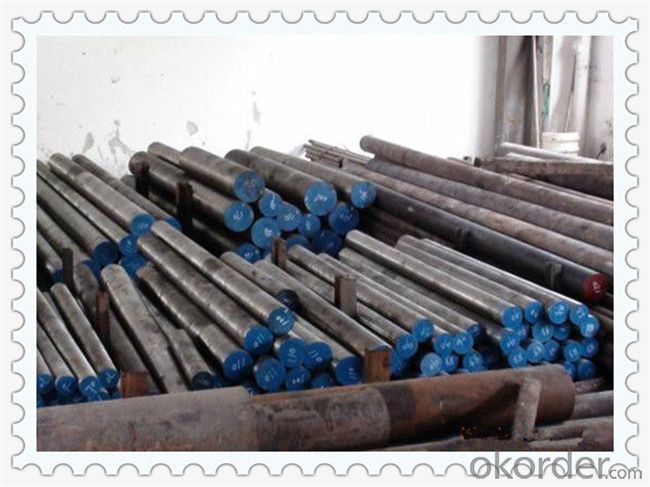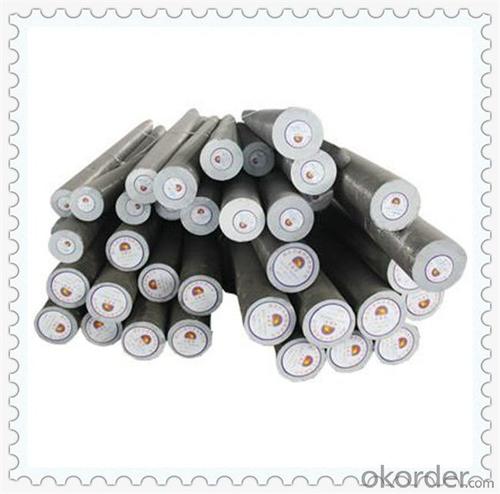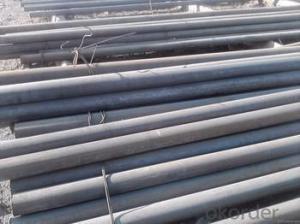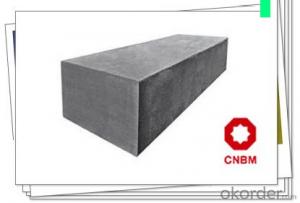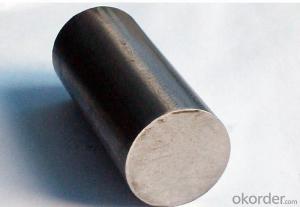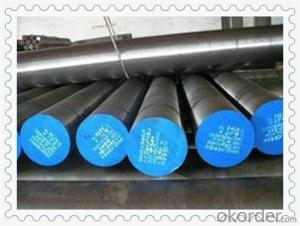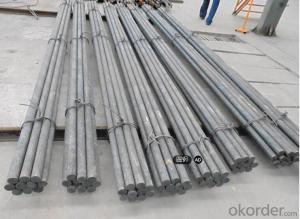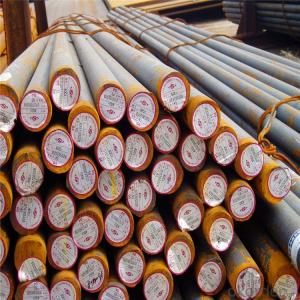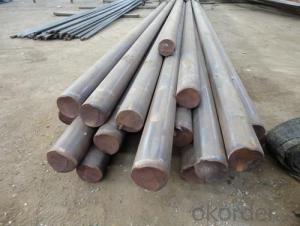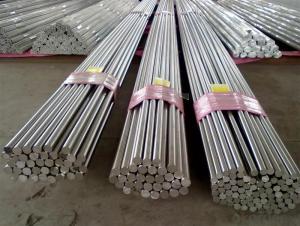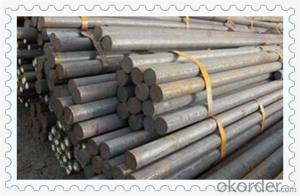1045 Grade 8.8 Carbon Steel Rod Bars
- Loading Port:
- China main port
- Payment Terms:
- TT OR LC
- Min Order Qty:
- 30 m.t.
- Supply Capability:
- 10000 m.t./month
OKorder Service Pledge
OKorder Financial Service
You Might Also Like
1045 Grade 8.8 Carbon Steel Rod Bars
Products Details
Equivalent Grades: JIS S45C, ASTM 1045, EN 8 and GB S45Cr
Diameter: Forged: 80-1500mm
Hot rolled: 9.5-310mm
Delivery Condtion: EAF + Refine furnace (LF) + VD+ Electroslag remelting + quickly
Forging + Annealing /Normalizing (or Quenching and tempering) +Turning
Inspection: 100% Ultrasonic according to the test standards:SEP1921-84,GR.3 CLASS C/C
1. Steel Grade
GB | ASTM | JIS | DIN | BS |
45# | 1045 | S45C | C45(1.0503) CK45(1.1191 | 08M48 |
2. Chemical Composition
Chemical Composition (%) | ||||||
C | Si | Mn | S | P | Cr | Ni |
0.42-0.50 | 0.17-0.37 | 0.50-0.80 | 0.035 | 0.035 | 0.25 | 0.25 |
B | 0.30-0.40 | |||||
3. Aplicaton
1) Can be used in many fields such as building, automobile, shipbuilding, petrochemical,
machinery, medicine, food, electric power, energy, space, building and decoration, etc.
2) Can be made into mould template, mortise pin, column
3) This kind of steel have good mechanical property, is widely used in structural parts
which may support stress alternation, especially made into some connecting rods, bolts, wheel gear...
4) This kind of steel is the most common blanks and materials of shaft parts.
Its die welding material model is CMC-E45.
Products Show
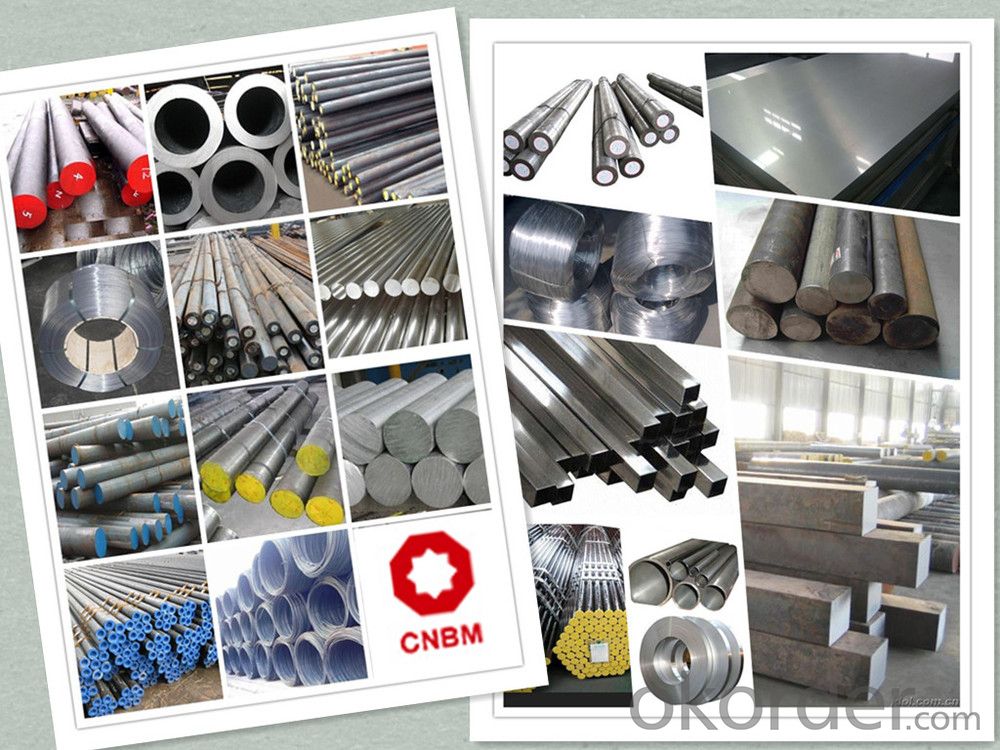
Product Overviews
| Product Name | Typical Grades | Diameter(mm) | Standard adopted |
| Carbon Steel | 20 (1020/S20C/C22) | Ø16-Ø300 |
GB/SAE/JIS/DIN
|
| 40 (1040/S40C/C40) | |||
| 45 (1045/S45C/C45) | |||
| Bearing Steel | GCr9 (51100/SUJ1) | Ø12-Ø250 | |
| GCr15 (52100/SUJ2/100Gr6) | |||
| GCr9SiMn (A485-Gr.1/SUJ3) | |||
Cr-Mo Steel | 20Cr (5120/SCr420H/20Cr4) | Ø12-Ø250 | |
| 40Cr (5140/SCr440/41Cr4) | |||
| 42CrMo(4140/SCM440/42CrMo4) | |||
| Gear Steel | 20CrNiMo | Ø16-Ø600 | |
| 20CrMn(5115/SMnC420/20MnCr5) | |||
| 20CrNiMo(8620/SNCM220/20CrMiMo2) |
Application
| Carbon Steel | Mold bottom, Plastic mold, Construction machinery parts Automobile parts, Security grills, Screens, Construction |
| Bearing Steel | Aerospace, Navigation, Nuclear energy, Chemical industry Electronic information, Petrochemical, Instrument and meter Transportation |
| Cr-Mo Steel | Mechanism & Fasteners gear, Stressed components for vehicles Engines and machines, Parts of larger cross-section |
| Gear Steel | All kinds of gears, Statically and dynamically stressed component for vehicles Engines and machine, Larger cross-section parts, Crankshafts |
Work Shop
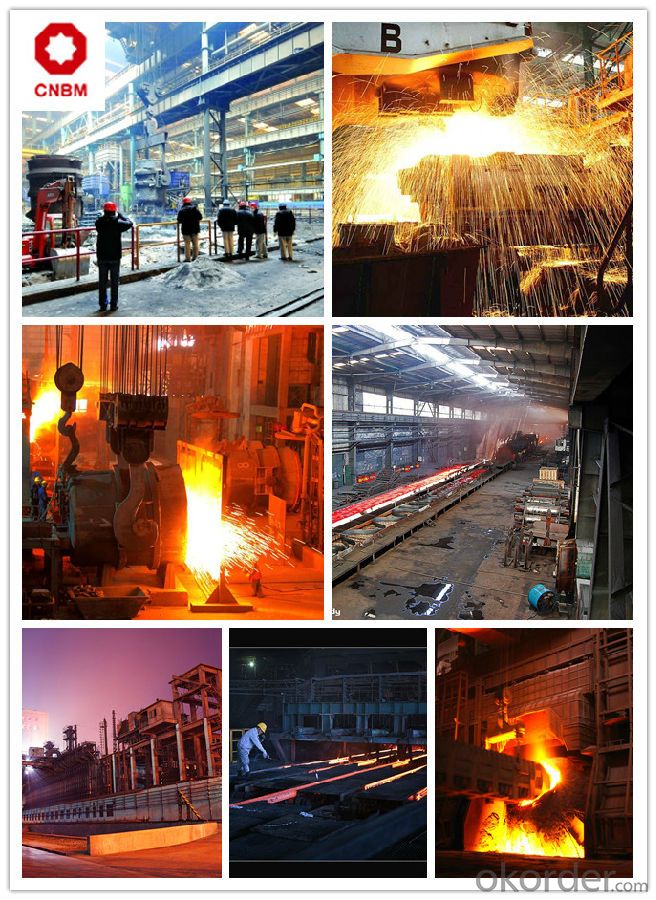
Company Information
CNBM International Corporation is the most important trading platform of CNBM group.
Whith its advantages, CNBM International are mainly concentrate on Cement, Glass, Iron and Steel, Ceramics industries and devotes herself for supplying high qulity series of refractories as well as technical consultancies and logistics solutions.

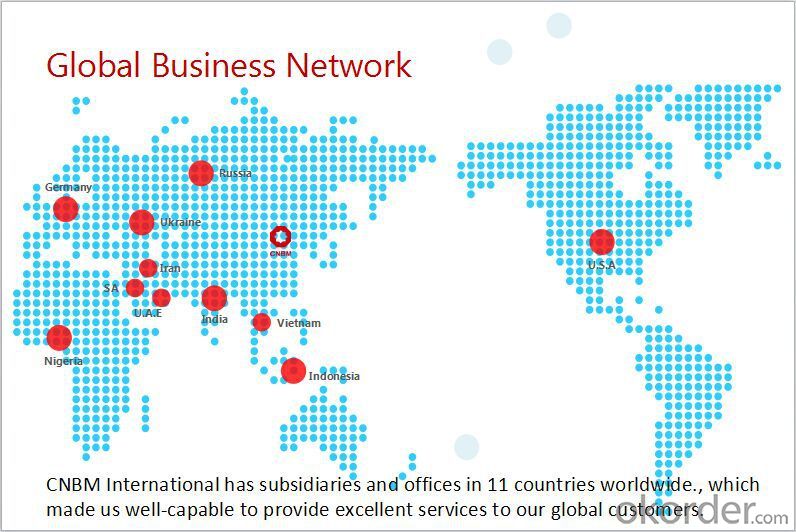
FAQ
1, Your advantages?
professional products inquiry, products knowledge train (for agents), smooth goods delivery, excellent customer solution proposale
2, Test & Certificate?
SGS test is available, customer inspection before shipping is welcome, third party inspection is no problem
3, Factory or Trading Company?
CNBM is a trading company but we have so many protocol factories and CNBM works as a trading department of these factories. Also CNBM is the holding company of many factories.
4, Payment Terms?
30% TT as deposit and 70% before delivery.
Irrevocable L/C at sight.
5, Trading Terms?
EXW, FOB, CIF, FFR, CNF
6, After-sale Service?
CNBM provides the services and support you need for every step of our cooperation. We're the business partner you can trust.
For any problem, please kindly contact us at any your convenient time.
We'll reply you in our first priority within 24 hours.
Packaging & Delivery
1, Packaging: seaworthy package or as required
2, Delivery: 35-45 days or based on quantity
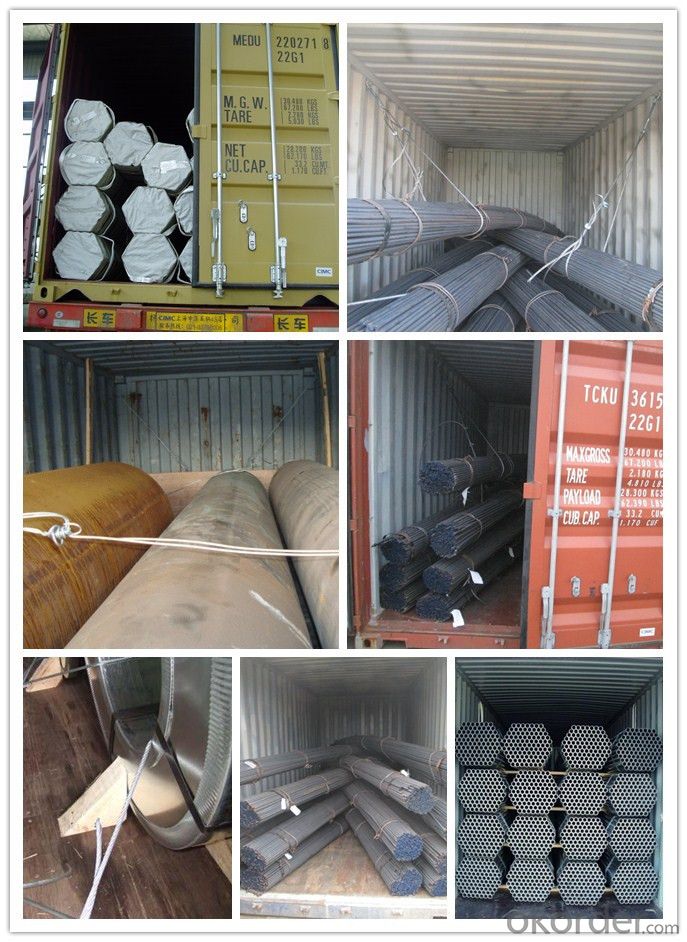
- Q: Is HRB335 round steel or rib steel?
- HRB335 is the hot rolled ribbed steel, two steel.This is the representation of the mechanical grade and dimension of threaded steel.
- Q: What are the different types of steel round bar coatings used in the oil and gas industry?
- Various coatings are commonly utilized in the oil and gas industry to enhance the durability and corrosion resistance of steel round bars. These coatings are essential for protecting the steel from the harsh conditions faced in oil and gas production, transportation, and refining processes. 1. Galvanized Coating: To enhance corrosion resistance, a layer of zinc is applied to the steel round bar through galvanization. This coating effectively safeguards the steel against moisture, chemicals, and exposure to the elements. Galvanized coatings find extensive usage in pipelines, offshore platforms, and storage tanks within the oil and gas industry. 2. Fusion Bonded Epoxy (FBE) Coating: FBE coating involves applying a thermosetting epoxy powder coating to the steel round bar using electrostatic spray. The coating is then fused with heat to form a robust, long-lasting, and corrosion-resistant layer. FBE coatings are widely employed in pipelines, valves, and fittings, providing excellent protection against corrosion, abrasion, and chemicals. 3. Polyethylene (PE) Coating: The application of a polyethylene layer to the steel round bar through extrusion or wrapping methods is known as PE coating. This coating is commonly utilized in oil and gas industry pipelines due to its exceptional resistance to corrosion, chemicals, and impact. Additionally, PE coatings are renowned for their flexibility, enabling the coated bars to withstand ground movement and temperature fluctuations. 4. Polypropylene (PP) Coating: Similar to PE coating, PP coating employs polypropylene instead. PP coatings offer comparable benefits to PE coatings, including corrosion resistance, chemical resistance, and flexibility. They are frequently employed in pipelines within the oil and gas industry, particularly in areas with higher temperatures or where chemical resistance is crucial. 5. Zinc-Nickel Coating: Zinc-nickel coatings involve electroplating a layer of zinc-nickel alloy onto the steel round bar. This coating provides outstanding corrosion protection, even in demanding environments such as offshore installations or high-salinity areas. Zinc-nickel coatings excel in both corrosion and abrasion resistance, making them highly suitable for diverse oil and gas applications. Overall, the utilization of these various steel round bar coatings plays a vital role in preserving the integrity and longevity of equipment and infrastructure in the oil and gas industry. They ensure that the steel bars can endure the challenging conditions encountered during exploration, production, and transportation, thereby reducing maintenance requirements and enhancing safety and reliability.
- Q: What are the cost considerations for steel round bars?
- The cost considerations for steel round bars typically include factors such as the grade and quality of steel used, the diameter and length of the bar, the quantity being purchased, and the current market conditions. Additionally, any additional processing, such as cutting or heat treatment, may also affect the overall cost.
- Q: Grade 1 steel is round steel, grade two steel is ribbed thread steel. Are the weight of the two units the same?
- Grade two steel is ribbed steel, but the average diameter is calculated. The chemical composition of grade steel and grade two steel is different, but the density of them is the same. Therefore, the unit weight of grade 1 steel and grade two steel is the same.
- Q: Are steel and round steel the same thing?
- Yuan steel and round steel are the same thing, they are round steel.
- Q: Can steel round bars be used for making shafts?
- Yes, steel round bars can be used for making shafts. Steel round bars are commonly used for their strength, durability, and machinability, making them suitable for shaft applications in various industries such as automotive, construction, and manufacturing.
- Q: How are steel round bars used in the automotive industry?
- Due to their strength, durability, and versatility, steel round bars are commonly employed in the automotive industry for a range of purposes. The production of crankshafts is one of the primary uses of steel round bars in this industry. Crankshafts are essential in converting the reciprocating motion of pistons into rotational motion, which powers the vehicle. Steel round bars are highly suitable for this function due to their high tensile strength, exceptional fatigue resistance, and ability to endure high torque loads. Steel round bars are also utilized in the manufacture of axles. Axles play a critical role in transferring power from the engine to the wheels while supporting the vehicle's weight and ensuring stability. Steel round bars provide the necessary strength and rigidity to handle the substantial loads and forces experienced by axles. Furthermore, steel round bars are employed in the production of suspension components like tie rods and sway bars. Tie rods are crucial for steering and maintaining proper alignment, while sway bars help control body roll and enhance handling. Steel round bars are preferred for these applications due to their exceptional torsional strength, enabling them to withstand the forces and stresses encountered during steering and suspension movements. Moreover, steel round bars are used in the creation of transmission shafts. Transmission shafts are responsible for transmitting power from the engine to the wheels through the gearbox. Steel round bars are well-suited for this task due to their high strength, resistance to bending, and ability to handle the rotational forces and torque generated by the engine. In conclusion, steel round bars are extensively employed in the automotive industry for various applications including crankshafts, axles, suspension components, and transmission shafts. Their superior strength, durability, and versatility make them an ideal choice for these critical components, ensuring the safety, performance, and reliability of vehicles.
- Q: How do steel round bars compare to carbon fiber round bars?
- Steel round bars and carbon fiber round bars are two different materials commonly used in various industries. Here is how they compare: Strength and Durability: Steel round bars are known for their exceptional strength and durability. They can withstand heavy loads, high temperatures, and harsh environments. Carbon fiber round bars, on the other hand, are also strong but are generally not as strong as steel bars. However, carbon fiber bars excel in terms of strength-to-weight ratio, making them a popular choice for applications where weight reduction is crucial. Weight: Steel round bars are significantly heavier than carbon fiber round bars. This weight difference often makes carbon fiber bars preferable in industries where weight reduction is important, such as aerospace and automotive sectors. Lighter bars can contribute to improved fuel efficiency, increased speed, and enhanced maneuverability. Corrosion Resistance: Steel round bars are prone to corrosion, especially when exposed to moisture and certain chemicals. Regular maintenance and protective coatings are often required to prevent rusting. On the other hand, carbon fiber round bars are inherently corrosion-resistant. This property makes carbon fiber bars valuable in environments where corrosion can be a concern, such as marine applications. Flexibility and Stiffness: Steel round bars are generally stiffer and less flexible compared to carbon fiber round bars. This characteristic can be advantageous in applications where rigidity and structural integrity are crucial, such as construction and heavy machinery. Carbon fiber round bars, on the other hand, offer higher flexibility and can be engineered to have different levels of stiffness, making them suitable for applications that require vibration damping or enhanced shock absorption. Cost: Steel round bars are generally more cost-effective compared to carbon fiber round bars. Steel is a widely available material, and its production costs are relatively low. Carbon fiber, on the other hand, is more expensive to produce due to the complex manufacturing process and the cost of raw materials. As a result, carbon fiber round bars tend to be pricier, limiting their use to industries where their unique properties justify the increased costs. In conclusion, steel round bars and carbon fiber round bars have their own advantages and disadvantages. Steel bars offer exceptional strength, durability, and cost-effectiveness, while carbon fiber bars excel in terms of weight reduction, corrosion resistance, flexibility, and stiffness. The choice between the two depends on the specific requirements of the application, including factors such as load-bearing capacity, weight reduction, corrosion resistance, and cost considerations.
- Q: Can steel round bars be used for making staircases?
- Yes, steel round bars can be used for making staircases. Steel round bars are commonly used in the construction industry for various applications, including staircase fabrication. They are strong, durable, and provide excellent structural support, making them an ideal choice for staircases. Steel round bars can be used to create the framework and structure of the staircase, providing stability and safety. Additionally, steel round bars can be easily shaped and welded to create different designs and styles for the staircase, allowing for customization and flexibility in the construction process. Overall, steel round bars are a reliable and popular choice for making staircases due to their strength, durability, and versatility.
- Q: What are the different grades of stainless steel round bars for marine applications?
- There are several different grades of stainless steel round bars that are commonly used for marine applications. The most common grades include 304, 316, and 316L stainless steel. Grade 304 stainless steel is a versatile and widely used alloy that offers good corrosion resistance, high strength, and excellent formability. It is often used for marine applications where moderate corrosion resistance is required. Grade 316 stainless steel is similar to grade 304, but it contains additional molybdenum, which enhances its corrosion resistance, especially against chlorides and other aggressive environments commonly encountered in marine applications. This grade is often preferred for marine environments where increased resistance to corrosion is necessary. Grade 316L stainless steel is a low carbon version of grade 316, which further improves its resistance to sensitization and intergranular corrosion. This makes it highly suitable for marine applications where welding is required, as it minimizes the risk of corrosion at the welds. In addition to these grades, there are also specialized stainless steel alloys such as duplex stainless steel, which combines the benefits of austenitic and ferritic stainless steels. These alloys offer even higher corrosion resistance and strength, making them suitable for more demanding marine applications. When selecting the grade of stainless steel round bars for marine applications, it is important to consider the specific environmental conditions, such as exposure to saltwater, chemicals, or high temperatures. Consulting with a materials specialist or referring to industry standards can help ensure the right grade is chosen for the specific marine application.
Send your message to us
1045 Grade 8.8 Carbon Steel Rod Bars
- Loading Port:
- China main port
- Payment Terms:
- TT OR LC
- Min Order Qty:
- 30 m.t.
- Supply Capability:
- 10000 m.t./month
OKorder Service Pledge
OKorder Financial Service
Similar products
Hot products
Hot Searches
Related keywords
